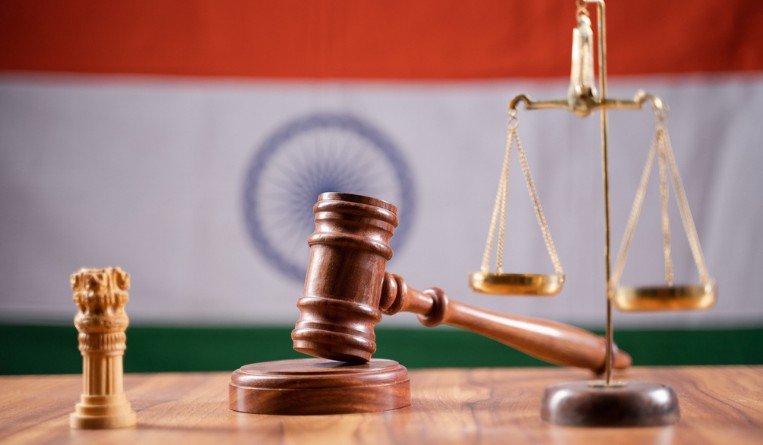Post-grant amendments: Flexibility or certainty?
30 November 2021

Amendment of patent claims is one of the most critical and strategic decisions that needs to be made during the lifetime of a patent. Both pre- and post-grant amendments can be of strategic importance in determining the economic value of the patent. Indian patent statutes provide provisions for the amendment of patents both before and after the grant of the patent. Indian patent laws recognize both voluntary and mandatory amendments. In this article, we shall be discussing various legal certainties and flexibilities for a patent holder to amend the claims of a patent.
Legal provisions regarding amendments under the Patents Act
Chapter X and Sections 57 to 59 exclusively deal with the amendment of applications and specifications.
Section 57 of the Patents Act, 1970 provides that all requests for the amendment of an application and specification or any document relating thereto must be made before the Controller of Patents. Every such application to amend the application for a patent needs to provide the nature of the proposed amendment and fully state the particulars of the reasons for which the application is made. The decision to allow or refuse the amendment is completely the discretion of the Controller. An amendment under this section may be, or include, an amendment of the priority date of a claim.
Any application for the post-grant amendment of a patent or a complete specification or a document related thereto, and the nature of the said proposed amendment is published in the official journal of the IP office. The effect of said publication is that any person interested can file an opposition and give a notice to the Controller within a period of three months from the date of said publication.
Under Section 59 of the Act, the following are permissible amendments:
- An amendment made by way of disclaimer, correction, clarification, or explanation;
- An amendment made for incorporation of actual fact;
- An amendment whose effect does not broaden the scope of the specification; or
- An amendment which falls within the scope of the unamended claim.
In case of a post-grant amendment, any amendment of the specification or any other documents related thereto is allowed by the Controller or the High Court, as the case may be, provided:
- The amendment for all purposes be deemed to form part of the specification along with other documents related thereto;
- The fact that the specification or any other documents related thereto has been amended shall be published as expeditiously as possible; and
- The right of the applicant or patentee to make an amendment shall not be called into question except on the ground of fraud.
Further, in construing the specification as amended, reference may be made to the specification as originally accepted.
Amendment of the specification before the High Court
It is the discretion of the Controller to allow or refuse the amendments of patents. However, if any suit for the infringement of the patent or any proceeding before the High Court for the revocation of the patent is pending before a court, and whether said suit or proceeding commenced before or after the filing of the application to amend, the Controller shall not pass any order allowing or refusing an application to amend the application for a patent. Once the validity of the patent has been challenged in a patent infringement suit, the jurisdiction to allow the amendment of a claim in the specification vests in the High Court.
In any proceeding before the High Court for the revocation of a patent, the High Court may, subject to the provisions contained in Section 59, allow the patentee to amend his complete specification in such manner and subject to such terms as to costs, advertisement or otherwise, as the High Court may think fit, and if, in any proceedings for revocation, the High Court decides that the patent is invalid, it may allow the specification to be amended instead of revoking the patent.
Where an application for an order is made to the High Court, the applicant shall give notice of the application to the Controller, and the Controller shall be entitled to appear and be heard, and shall appear if so directed by the High Court.
The copies of all orders of the High Court allowing the patentee to amend the specification shall be transmitted by the High Court to the Controller who shall, on receipt thereof, cause an entry thereof and reference thereto to be made in the register.
Strategic advises regrading amendments:
If the patentee is aware of the defect in the claims in view of a prior art, then he should immediately amend the claims or specification as the case may be, at the patent office.
In case of counterclaim by defendant in an infringement suit or a revocation, if the patentee becomes aware of any prior art, then he should immediately file a request for amendment at the court.
The applicable grounds to examine the amendments has been explained in Smith Kline & French Laboratories Ltd v. Evans Medical Ltd [1989] FSR 561. These guidelines include:
- The onus to establish that the amendment should be allowed is upon the patentee and full disclosure must be made of all relevant matters. If there is a failure to disclose all the relevant matters, the amendment will be refused;
- The amendment will be allowed provided the amendments are permitted under the Act;
- The amendment needs to be sought promptly, or the patentee must show reasonable grounds for delay;
- A patentee who seeks to obtain an unfair advantage from a patent, who knows or should have known of the need to amend the patent, will not be allowed to amend; and
- The court is concerned with the conduct of the patentee and not with the merit of the invention.
In view of the discussion and well-settled position of the law, the post-grant amendment is merely a clarificatory/elaborative one and does not alter the scope of the invention. If the patentee has enjoyed the patent for a long time, despite being clearly aware of the lacunae in the patent which was under challenge legally, the patentee cannot be permitted to make the amendments in the specification at the later stage merely to overcome the challenge to its patent, moreso when there is a challenge pending for many years.
Where an amendment of a specification by way of disclaimer, correction or explanation has been allowed under the Patents Act, 1970, after the publication of the specification, no damages or account of profits shall be granted in any proceeding in respect of the use of the invention before the date of the decision allowing the amendment unless the court is satisfied that the specification as originally published was framed in good faith and with reasonable skill and knowledge.
Conclusion
Post-grant amendments are allowed in India, provided the patentee is able to show that the amendments are done in good faith and as soon as he came to know about the defect in the clims he took action to remove said defects.







